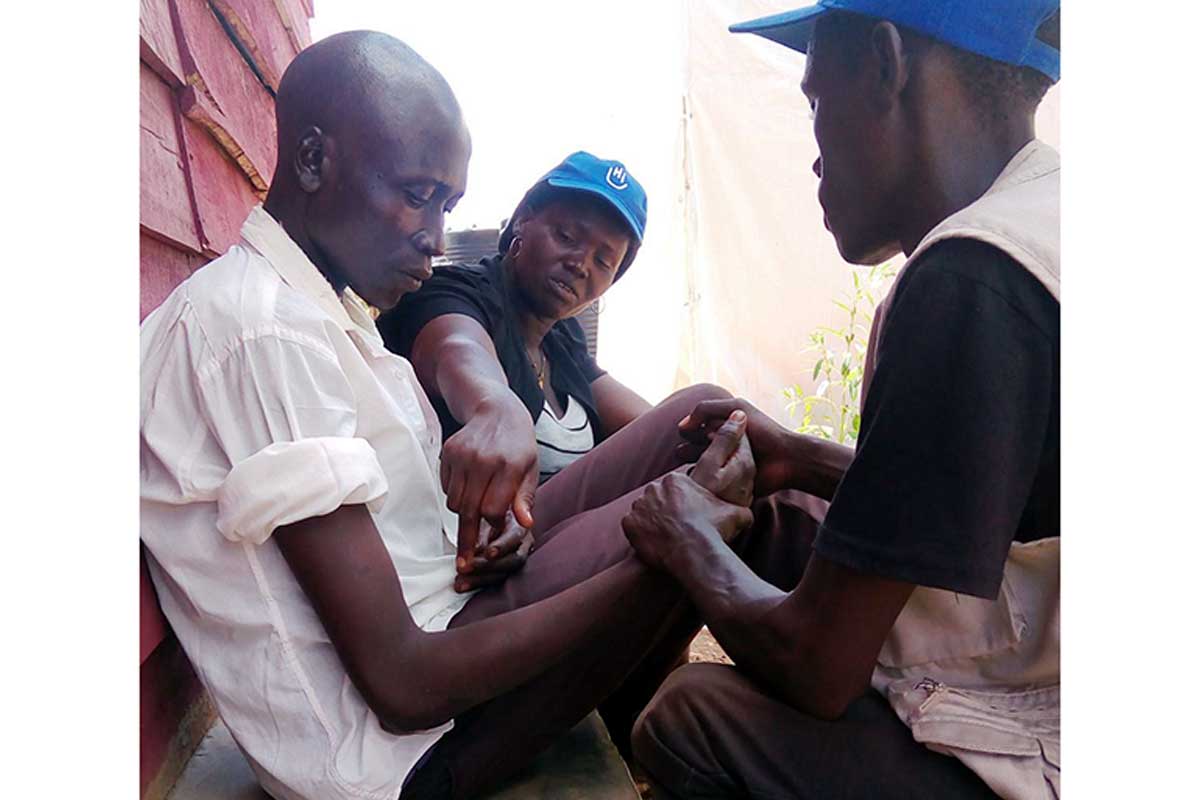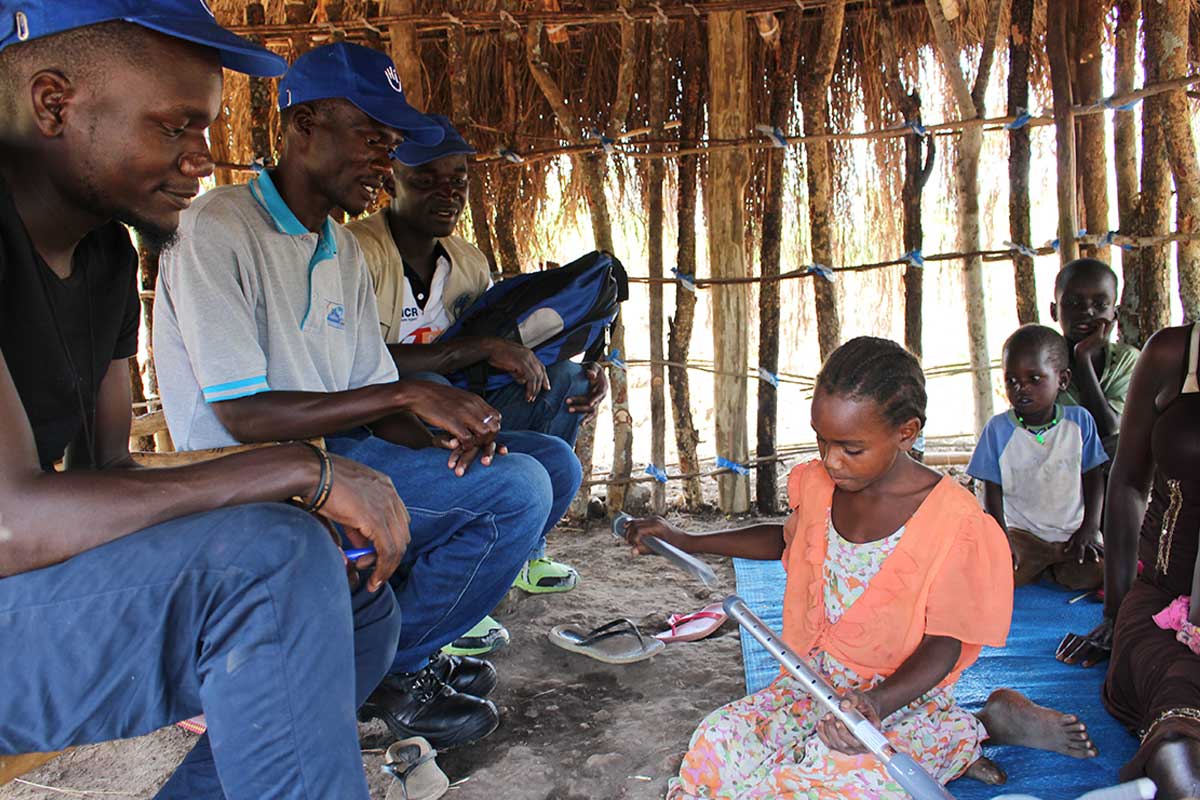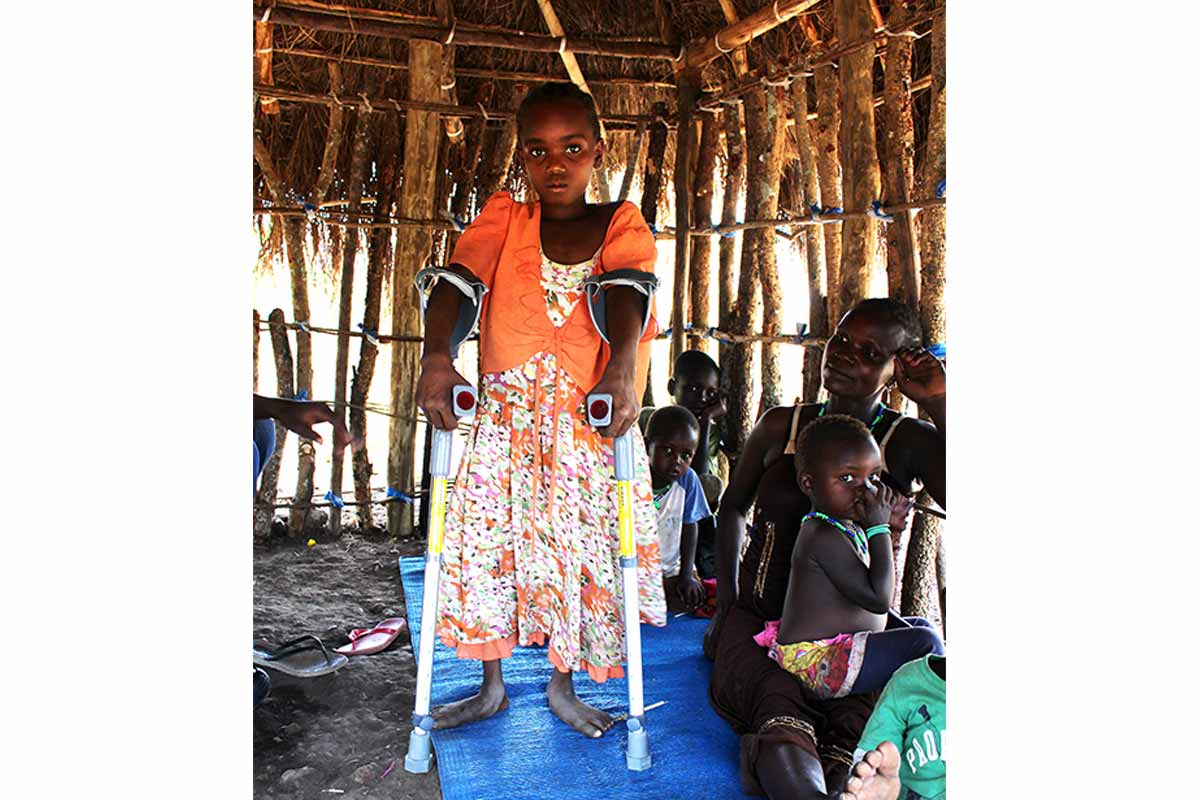Why was it important for HI to start rehabilitation activities for refugees in Uganda?
HI started its rehabilitation activities because the needs are huge, due to the type of conflict faced by South Sudanese refugees.
There are no other rehabilitation services in the camp at the moment - HI is the first organisation to provide this service.
We can see the violence of the conflict on our beneficiaries’ bodies.
Some of our beneficiaries suffered extreme violence and did not have access to any healthcare for a long time and had to continue with their injuries, making them worse.
What are the situations of the people that HI is supporting?
A lot of our beneficiaries have fractures and gunshot injuries. Many were attacked during the night and had to run away. Most of them have walked for days in very difficult conditions without having access to any health services.
We see a lot of beneficiaries who have complications from simple injuries that could have been treated quickly if dealt with at an early stage. With a fracture for example, serious complications can lead to a permanent impairment.

© Meryll Patois/HI
Abdel Rahman used to be a driver. He was hit by a gunshot in his right elbow which paralysed his arm. His injury means that he won’t be able to work any more. HI’s physiotherapist is providing Abdel Rahman with rehabilitation sessions and he is receiving support from one of HI’s community volunteers.
How is HI working in the refugee camps in Uganda?
HI has an integrated approach - we have a global vision of every beneficiary we meet.
For example, a mother with a broken leg cannot walk any more, so she cannot go to buy food in the market, or work, or take care of her children. She may also have psychological trauma.
In this case, our team would of course provide her with rehabilitation but also psychological and protection support. We would also refer her to other organisations so that she can access all the services she needs to be included in her community.
Our team also try to find out if there is a carer who could help the injured or disabled person. If so, we train each carer so they know what to do to support their friend, neighbour, or family member.
We find a lot of solidarity in the camps. Neighbours are supporting each other even if they only met when they arrived. We rely on these human links to make sure beneficiaries can get all the care they need.

© Marlene Sigonney/HI
Tabitha is an 8-year-old little girl from South Sudan. She now lives in Omugo refugee camp in Uganda with her family.
The polio virus has affected Tabitha’s legs and she needs crutches to walk around the camp and go to school. Her old crutches did not fit her any more, making it difficult for Tabitha to walk with them. It would take her a long time to walk to school and she was always late.

© Marlene Sigonney/HI
HI's team provided her with new crutches correctly fitted to her height. Our physios took the time to show Tabitha how to use her crutches and change the way they fit. She picked it up very quickly, impressing everyone. Tabitha feels more comfortable now and will not be late for school any more!
How do people access HI’s rehabilitation services in the refugee camp?
HI has a small rehabilitation clinic in the camp where people can find us, and we also have mobile teams of physiotherapists to reach the most vulnerable people who cannot leave their shelters.
During a rehabilitation session, HI’s physiotherapists try to work on movement to help the beneficiaries recover. If independent movement is not possible, HI’s team provide the beneficiaries with assistive devices to help improve their daily life, such as crutches, wheelchairs, etc.
How do you identify people who need support?
We have a protection team which goes around the camp and identifies the most vulnerable people and their needs. We also rely on our community-based volunteers who are also refugees themselves and know the community very well. We also have some beneficiaries referred to us by partners such as Save the Children and IRC.
There is a huge injustice for people who cannot move around and don’t have access to the services they need because they cannot leave their shelter.
HI is reaching those invisible people who are often excluded from humanitarian aid.
These people are unintentionally forgotten. Our role is to make sure that they receive the support they need.
Sadly, there are still many in need of our support today.







